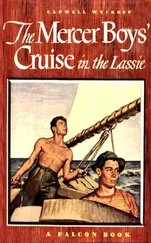The satellite’s optical sensor swung to the horizon of the earth, and the radar attached to the belly of the platform also pointed in the same direction. Several small corrections in attitude were made to stabilize the satellite that was starting to reach a very unstable orbit. Two small missiles were on either side of the doors, and with one final adjustment, the entire satellite was now orbiting on its side as all three of its primary equipment packages were searching for something.
Within minutes, and like clockwork, the optical sensors spotted the heat signature of a decaying plutonium radioisotope device powering the American spy satellite that swung from low earth orbit whizzing by at over twenty-seven thousand miles per hour. It would pass over the Chinese mainland in two minutes. Its own powerful optic camera, data receivers, and heat sensors were pointed at the earth below as if in anticipation of what was to come, oblivious to the Chinese military satellite that floated above it, waiting for the American satellite to pass underneath.
Optic sensors that relayed the event resulted in the computer activating the small radar unit and scanning in a tight beam the estimated path of the American satellite. Once it was detected on radar, all telemetry and trajectory information was fed into the main computer on board as well as a tight laser burst to the earth receivers below. This allowed the satellite to fire small thrusters just enough to change the angle of attack by a few degrees. It would be enough to make sure the intercepting missiles were in the same vicinity as the American satellite since the closure rate of speed for both would be phenomenal.
Before the US equipment could photograph, record, or monitor the Chinese launch facility at Wenchang, the Chinese military missiles ignited, first one and then, two seconds later, the other. Both were slender and not much larger than any air-to-air missiles. In space, it was not necessary to obliterate a target, which was often made of the lightest materials due to payload limitations, so the heat-seeking warheads were armed with high fragment, high velocity explosives.
The first rocket nearly hit the US satellite with a closing rate of nearly forty thousand miles per hour, detonating when its proximity detector recognized the setting for optimum damage. The shrapnel tore holes in the fragile satellite and ignited the small amount of liquid hydrogen onboard that it used for altitude adjustments. The small amount of debris that did survive was obliterated as the second missile detonated, the warhead proximity detector set to a tighter specification and the payload being higher in explosives.
The remains of the US satellite continued their orbit over the earth, but in several thousand micro pieces. The Chinese hulk, mission accomplished, realigned its small burn motors when it was pointed at the earth and ignited, beginning its last journey to burn up during reentry over the East China Sea. There would be no evidence for the Americans to find.
* * * * *
NASA Space Center
Houston, Texas
In the near future, Day 13
“They did what?” Mr. Smith practically yelled into the phone, gaining the attention of Rock’s crew. They had been at it all week, and things had settled down once the president and her staff returned to Washington. Mr. Smith and Mrs. Brown seemed to be taking turns with Rock’s group, and it was a betting matter between his team members of who would show up each morning.
They had no orders to work any quota of hours, but the unsaid rule was twelve to fourteen at the minimum. They pretty much took a minimal amount of time off in order to keep the families happy and to forestall burnout.
Monroe and Alders had been taken to the water tanks to practice low gravity exercises, and Rock heard that the two replacements for them, not scheduled to enter the rotation for another year, had been conscripted and were arriving this weekend to train in the water tanks as well. Rumor also had it that the prior pair of astronauts who had been on board the Russian space station were being called in as well, but he hadn’t heard any particulars on that one.
“What’s got his panties all twisted up?” Tom asked, leaning across the diagram board where a schematic for the Saturn V was laid out.
“Whatever it is, he looks pissed,” Lisa said, pulling her papers together in anticipation of breaking for lunch. Not that they went anywhere for lunch. It was usually served to them in the large room they had renovated into an open work space that could handle twice their numbers easily.
“I’ll check with them. You guys get something to eat and meet back here in fifteen,” Rock said.
“Hey, what’s with that?” Lisa asked, a frown on her face.
“Take your time, Lisa, we just need to get the fuel specs down by this afternoon for the adjusted payload. You’ll be busy tonight adjusting the equipment weights and updating their configuration after we get you the gross payload data,” Rock said.
“Fine, I’ll phone home and let them know we’ll be missing another dinner together,” Lisa said, her tone hurt.
Rock pulled her aside, and the rest moved off to allow them a private conversation. “I know this is hard on you. Hell, it’s hard on all of us. But you’re the best systems engineer we got, and I need you on this. You get the equipment data squared away, and I’ll see what I can do about getting some of you a little time this weekend. I’ll tell the spooks that a burned out engineer won’t be worth a damn to me… or us and the program, all right?”
Lisa nodded, understanding. “Thanks, Richard, I am just stressing right now with the deadlines they are placing on the team, and I know I’m not the only one. You, Tom, and Marge may not have kids at home, but I know Jack has little ones and he’s sucking it up, so I’ll do the same.”
“Sounds like some of that Air Force spirit,” Rock said, smiling.
“Thanks for understanding. I’m sure the stress is high for you, too.”
“I’ll manage. Get some grub and let me find out what’s tickled Mr. Smith’s ass. I hate to think he could get any grumpier than he already is,” Rock said.
Lisa smiled and then headed to the cafeteria, leaving Rock to approach Smith.
“Something I should know?” Rock asked, coming right up to Smith who was putting his cell phone away. The call he took was on the secure red line that was mandatory to use when calling Washington. No cell calls allowed.
“Let me get Mrs. Brown in here first and then we’ll talk.”
Rock stepped back to the schematic board where Tom was moving some papers and running numbers on his tablet. The two men knew that one of the cafeteria staffers would be bringing sandwiches and soup again as well as coffee and tea for Tom. Rock swore the Brit was addicted to it. It wasn’t cigarettes that stained the man’s teeth brown, that’s for sure.
Mr. Smith came over and sat on a stool at the draft table, which was lit from beneath, but Tom turned the light off and rolled the schematic up out of the way in anticipation of lunch being served soon.
“Well?” Rock asked.
“It appears we lost one of our key satellites today. This stays between us, do you understand, Crandon?” Smith asked, his eyebrows arched but his face serious.
“Understood, and that goes for Tom, too,”
“Aye, I’ll keep it quiet-like,” Tom said. Mr. Smith had relaxed over the last two weeks, if ever so slightly, and seemed to be at least trusting Rock and his team if not completely giving them the keys to the kingdom, so to speak.
“We don’t know for sure, but the bird was tasked with daily surveillance of the Wenchang Space Center, and not more than an hour ago, it went offline. We can’t reach it, and it’s not responding to commands either.”
Читать дальше












